Irwin Corey is a Actor American born on 29 july 1914 at Brooklyn (USA)

"Professor" Irwin Corey (born July 29, 1914) is an American comic, film actor and activist, often billed as "The World's Foremost Authority". He introduced his unscripted, improvisational style of stand-up comedy at the well-known San Francisco club, the hungry i. Lenny Bruce once described Corey as "one of the most brilliant comedians of all time".
Corey supported left-wing politics. "When I tried to join the Communist Party, they called me an anarchist." He has appeared in support of Cuban children, Mumia Abu-Jamal, and the American Communist Party, and was blacklisted in the 1950s, the effects of which he says still linger to this day. (Corey never returned to Late Night with David Letterman after his first appearance in 1982, which he claimed was a result of the blacklist still being in effect.) During the 1960 election, Corey campaigned for president on Hugh Hefner's Playboy ticket. Corey was a frequent guest on The Tonight Show hosted by Johnny Carson during the late 1960s and early 1970s.
When the famously publicity-shy Thomas Pynchon won the National Book Award Fiction Citation for Gravity's Rainbow, he asked Corey to accept it on his behalf. The New York Times described the resulting speech as "...a series of bad jokes and mangled syntax which left some people roaring with laughter and others perplexed."
In the Robert A. Heinlein science fiction novel Friday, the eponymous heroine saysAt one time there really was a man known as "the World's Greatest Authority." I ran across him in trying to nail down one of the many silly questions that kept coming at me from odd sources. Like this: Set your terminal to "research." Punch parameters in succession "North American culture," "English-speaking," "mid-twentieth century," "comedians," "the World’s Greatest Authority." The answer you can expect is "Professor Irwin Corey." You’ll find his routines timeless humor.
For an October 2011 interview, Corey invited a New York Times reporter to visit his 1840 carriage house on East 36th Street. Corey estimated its resale value at $3.5 million. He said that, when not performing, he panhandled for change from motorists exiting the Queens-Midtown Tunnel. Every few months, he told the interviewer, he donated the money to a group that purchased medical supplies for Cuban children. He said of the drivers who supplied the cash, "I don’t tell them where the money’s going, and I’m sure they don’t care." Irvin Arthur, Corey's agent for half a century, assured the reporter that Corey did not need the money for himself. "This is not about money," Arthur said. "For Irwin, this is an extension of his performing." In his memoir, Phoning Home, Jacob M. Appel cites a personal encounter with Corey on a street in New York City as the basis for his novel, The Man Who Wouldn't Stand Up.
Source : Wikidata
Irwin Corey

- Infos
- Photos
- Best films
- Family
- Characters
- Awards
"Professor" Irwin Corey (born July 29, 1914) is an American comic, film actor and activist, often billed as "The World's Foremost Authority". He introduced his unscripted, improvisational style of stand-up comedy at the well-known San Francisco club, the hungry i. Lenny Bruce once described Corey as "one of the most brilliant comedians of all time".
Biography
Corey was born in 1914 in Brooklyn, New York. Poverty-stricken, his parents were forced to place him in the Hebrew Orphan Asylum of New York, where Corey remained until his early teens, when he rode the rails out to California, and enrolled himself at Belmont High School in Los Angeles. During the Great Depression he worked for the Civilian Conservation Corps and, while working his way back East, became a featherweight Golden Gloves boxing champion.Corey supported left-wing politics. "When I tried to join the Communist Party, they called me an anarchist." He has appeared in support of Cuban children, Mumia Abu-Jamal, and the American Communist Party, and was blacklisted in the 1950s, the effects of which he says still linger to this day. (Corey never returned to Late Night with David Letterman after his first appearance in 1982, which he claimed was a result of the blacklist still being in effect.) During the 1960 election, Corey campaigned for president on Hugh Hefner's Playboy ticket. Corey was a frequent guest on The Tonight Show hosted by Johnny Carson during the late 1960s and early 1970s.
When the famously publicity-shy Thomas Pynchon won the National Book Award Fiction Citation for Gravity's Rainbow, he asked Corey to accept it on his behalf. The New York Times described the resulting speech as "...a series of bad jokes and mangled syntax which left some people roaring with laughter and others perplexed."
In the Robert A. Heinlein science fiction novel Friday, the eponymous heroine saysAt one time there really was a man known as "the World's Greatest Authority." I ran across him in trying to nail down one of the many silly questions that kept coming at me from odd sources. Like this: Set your terminal to "research." Punch parameters in succession "North American culture," "English-speaking," "mid-twentieth century," "comedians," "the World’s Greatest Authority." The answer you can expect is "Professor Irwin Corey." You’ll find his routines timeless humor.
For an October 2011 interview, Corey invited a New York Times reporter to visit his 1840 carriage house on East 36th Street. Corey estimated its resale value at $3.5 million. He said that, when not performing, he panhandled for change from motorists exiting the Queens-Midtown Tunnel. Every few months, he told the interviewer, he donated the money to a group that purchased medical supplies for Cuban children. He said of the drivers who supplied the cash, "I don’t tell them where the money’s going, and I’m sure they don’t care." Irvin Arthur, Corey's agent for half a century, assured the reporter that Corey did not need the money for himself. "This is not about money," Arthur said. "For Irwin, this is an extension of his performing." In his memoir, Phoning Home, Jacob M. Appel cites a personal encounter with Corey on a street in New York City as the basis for his novel, The Man Who Wouldn't Stand Up.
Usually with
Filmography of Irwin Corey (14 films)
Actor
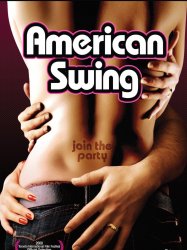
American Swing (2009)
Origin USA
Genres Documentary
Actors Ron Jeremy, Melvin Van Peebles, Buck Henry, Irwin Corey
Roles Self (as Professor Irwin Corey)
Rating61%





 , 1h43
, 1h43Directed by Woody Allen
Origin USA
Genres Thriller, Comedy, Comedy thriller, Crime, Romance
Actors Woody Allen, Dan Aykroyd, Helen Hunt, John Tormey, Wallace Shawn, David Ogden Stiers
Roles Charlie
Rating66%





In 1940, C.W. Briggs (Woody Allen) is an insurance investigator in New York City who is highly successful, owing to his many connections and ability to think like a criminal. His work does not impress Betty Ann Fitzgerald (Helen Hunt), an efficiency expert who butts heads with C.W. over his old-fashioned views. Her advice is usually followed however, because she secretly is in a relationship with her boss, Chris Magruder (Dan Aykroyd), who constantly reassures her that they will be free to pursue their relationship in public once he finalizes his divorce with his wife.

Jack (1996)
, 1h53Directed by Francis Ford Coppola
Origin USA
Genres Drama, Science fiction, Comedy, Comedy-drama
Themes Vieillesse
Actors Robin Williams, Diane Lane, Jennifer Lopez, Bill Cosby, Fran Drescher, Brian Kerwin
Roles Poppy
Rating58%





The movie begins with Karen Powell (Diane Lane) going into labor during a costume party and being rushed to the hospital by her husband Brian (Brian Kerwin) and their friends. Although the delivery is successful, the baby is premature, born after only ten weeks of pregnancy, and is diagnosed with an exaggerated form of Werner syndrome (an aging disease) as stated by Dr. Benfante (Allan Rich) and Dr. Lin (Keone Young). According to them, as this very rare autosomal recessive disorder progresses, Jack Powell will age at a rate four times as fast as normal children due to his internal clock that seems to be developing faster.
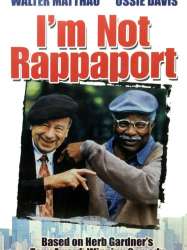
I'm Not Rappaport (1996)
, 2h15Origin USA
Genres Comedy
Themes Films based on plays
Actors Walter Matthau, Ossie Davis, Amy Irving, Craig T. Nelson, Marin Hinkle, Boyd Gaines
Roles Sol
Rating64%





Inspired by two elderly men Gardner met in New York City's Central Park, it focuses on Nat Moyer, a cantankerous white Jew, and Midge Carter, a feisty African-American, who spend their days sitting on a bench, trying to mask the realities of aging, mainly through the tall tales that Nat spins. The play touches on several issues, including society’s treatment of the aged, the difficulties dealing with adult children who think they know what's best for their parents, and the dangers that lurk in urban areas.
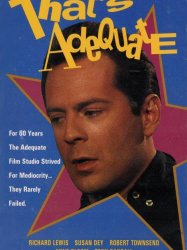
That's Adequate (1989)
, 1h22Directed by Harry Hurwitz
Origin USA
Genres Comedy
Actors Tony Randall, Amy Stiller, James Coco, Robert Downey Jr., Jerry Stiller, Bruce Willis
Roles D.W. Godilla
Rating48%





Faux documentary about a fictional Hollywood film studio.

Crackers (1984)
, 1h28Directed by Louis Malle
Origin USA
Genres Comedy, Action, Crime
Themes Heist films, Gangster films, Escroquerie
Actors Donald Sutherland, Jack Warden, Sean Penn, Wallace Shawn, Trinidad Silva, Christine Baranski
Roles Lazzarelli
Rating51%





The action is set in San Francisco during the 1980s. Weslake, who was laid off from his job, is working in a low-paying position at Garvey's pawn shop. Weslake has one friend nicknamed 'Turtle' who's homeless and is seen throughout the whole film searching for something to eat.

The Comeback Trail (1982)
, 1h16Directed by Harry Hurwitz
Genres Comedy
Actors Chuck McCann, Buster Crabbe, Ina Balin, Henny Youngman, Irwin Corey
Roles Irwin Corey
Rating69%





Two down-on-their-luck film producers, Eastman and Kodac, decide to make a Western film with an old actor in hopes that he will die and they will collect the insurance money.
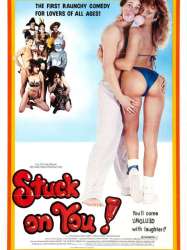
Stuck on You! (1982)
, 1h30Directed by Lloyd Kaufman
Genres Comedy, Fantasy, Romance
Themes Films about sexuality, Erotic films, Sexploitation films
Actors Irwin Corey, Patricia Tallman
Roles Judge Gabriel
Rating41%





The film, supposedly inspired by the writings of Tom Lehrer and Stan Freberg, follows

Fairy Tales (1978)
, 1h16Directed by Harry Hurwitz
Origin USA
Genres Erotic, Comedy, Adventure, Romance
Themes Films about sexuality, Erotic films
Actors Sy Richardson, Irwin Corey, Angelo Rossitto, Jeff Doucette, Angela Aames, Linnea Quigley
Roles Dr. Eyes
Rating50%





On his twenty-first birthday, the Prince of the land goes searching for the one woman that can get his libido moving again.
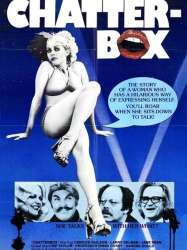
Chatterbox! (1977)
, 1h12Directed by Tom DeSimone
Origin USA
Genres Comedy, Fantasy, Musical
Actors Irwin Corey, Larry Gelman, Rip Taylor, Jane Kean, Arlene Martel, Sandra Gould
Roles Himself
Rating50%





Penelope, a young hairdresser, discovers her vagina can talk when it criticizes a lover's performance, who leaves in a huff. At the salon where she works, her talking vagina insults a lesbian client, which leads to her being fired. Penelope goes to a psychiatrist, Dr. Pearl, where she reveals her "problem". In the psychiatrist's office, her vagina reveals a new talent, singing. It has a propensity for singing show tunes. Dr. Pearl reveals her secret to friends of his in show business. At a meeting of the American Medical Association, Penelope and her talking vagina, now called "Virginia", are revealed to the public for the first time. Virginia regales the assembled physician with show tunes. Dr. Pearl becomes her agent, and over Penelope's objections, launches Penelope and Virginia on an entertainment career. At a show emceed by Professor Irwin Corey, Virginia sings in public for the first time, becoming a star after crooning a disco tune. Virginia increasingly becomes the tail that wags the dog, with Penelope becoming increasingly unhappy as "they" become a successful act on a cross-country tour. Despite her new success, Penelope decides to kill herself until she sees the lover from the start of the movie and discovers that he has a talking penis.
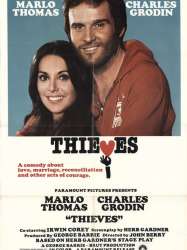
Thieves (1977)
, 1h32Directed by John Berry
Origin USA
Genres Comedy, Romantic comedy
Themes Films based on plays, Films about marriage
Actors Marlo Thomas, Charles Grodin, Irwin Corey, Héctor Elizondo, Mercedes McCambridge, John McMartin
Roles Joe Kaminsky
Rating46%





This script must be run from the command line

Car Wash (1976)
, 1h37Directed by Michael Schultz
Origin USA
Genres Drama, Comedy, Romance
Themes Films about music and musicians, Films about sexuality, LGBT-related films, Musical films, LGBT-related films, LGBT-related film
Actors Franklyn Ajaye, Bill Duke, George Carlin, Irwin Corey, Ivan Dixon, Antonio Fargas
Roles The Mad Bomber
Rating61%





Le film conte une journée ordinaire dans une station de lavage manuelle de Los Angeles. On trouve le patron américain type (Sully Boyar) affublé de son fils maoïste, les laveurs de voiture, petites gens venus de tous les horizons (Jack Kehoe, Pepe Serna, Henry Kingi, Clarence Muse), et les divers clients (Lorraine Gary, Richard Pryor, Irwin Corey), tous sont plus farfelus les uns que les autres : le rebelle prônant la suprématie noire (Bill Duke), l’ancien détenu, l'obèse surnommé Hippo, les jeunes écervelés, l’homosexuel (Antonio Fargas), le bookmaker, les danseurs qui croient qu'Hollywood les attend, l’amoureux transi (Franklyn Ajaye), qui rêve de devenir un super-héros, mais qui n'arrive pas à séduire la serveuse du restaurant d'en face (Tracy Reed).

Fore Play (1975)
, 1h15Directed by John G. Avildsen, Ralph Rosenblum, Bruce Malmuth
Origin USA
Genres Comedy
Actors Zero Mostel, Estelle Parsons, Pat Paulsen, Jerry Orbach, Paul Dooley, George S. Irving
Roles Professor Irwin Corey
Rating40%





The film is split into three segments: the first involves a man buying an animate sex doll and his many failed attempts to bed it. In the second story, a man suffering from writer's block find his muse by undressing various women. Finally, the third story involves the President of the United States, whose daughter is kidnapped and will be killed unless the President and his wife have sex on national television.

How to Commit Marriage (1969)
, 1h35Directed by Norman Panama
Origin USA
Genres Comedy, Romantic comedy, Romance
Actors Bob Hope, Jackie Gleason, Jane Wyman, Leslie Nielsen, Paul Stewart, Maureen Arthur
Roles The Baba Ziba (as Professor Irwin Corey)
Rating53%





Nancy, the 19-year-old daughter of Frank and Elaine Benson (Bob Hope and Jane Wyman), wants to marry David (Tim Matheson), the 20-year-old son of Oliver Poe (Jackie Gleason). What the bride doesn't know is that her parents are about to get a divorce.
 Connection
Connection




